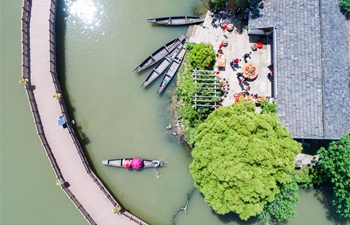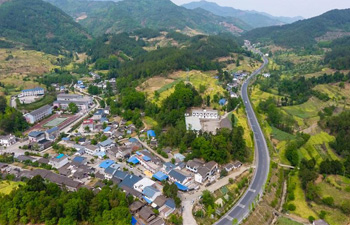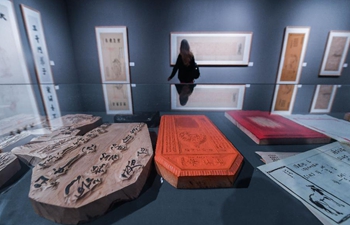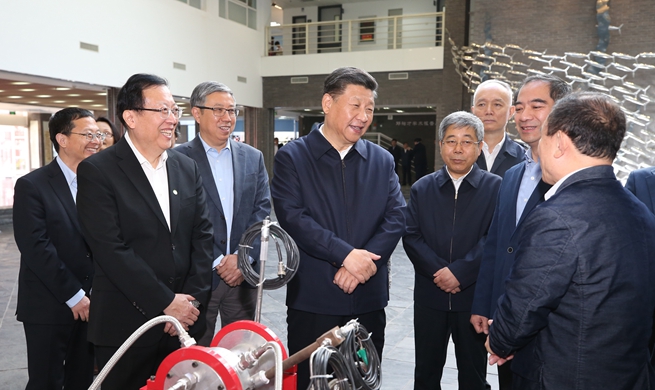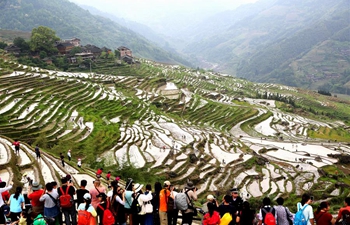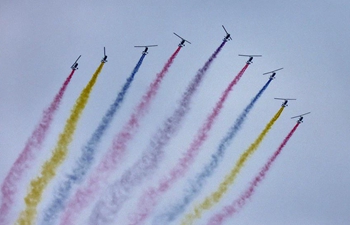HARBIN, May 3 (Xinhua) -- Mingming is 23 years old, but weighs far less than most women her age. She hardly went to school and has spent most of the last 15 years of her life in bed with a chronic illness.
Living at a bungalow near a railroad in Qiqihar City of northeast China's Heilongjiang Province, Mingming (she is hesitant to disclose her full name) is a victim of abandoned chemical weapons left by invading Japanese soldiers after the Second World War.
"Everything changed when I was eight years old," she said.
On Aug. 4, 2003, five iron barrels were unearthed from a construction site and nobody knew they contained highly-toxic mustard gas. A total of 44 people were poisoned, including Mingming, who had played on a pile of dirt near the gas leak.
"In the last years of the Second World War, invading Japanese troops buried and abandoned large quantities of poisonous agents, and threw some into a nearby river," said Cao Zhibo, a historian who researches issues surrounding chemical weapons abandoned by invading Japanese troops.
Experts estimate that there are about 2,000 victims of the fatal abandoned chemical weapons in China and many people are still suffering. Lawyers and social workers have highlighted the plight of the victims.
"After the poisonous gas leak in 2003, the Japanese side provided a certain amount of relief payment or consolation money, but never in the form of compensation in a legal sense," said Luo Lijuan, a local lawyer who advocated for the victims. "The money they received were never enough to cover their medical bills."
"The heath conditions of the victims are deteriorating. Many suffered from stomach, lung and liver cancer," she said.
Li Guoqiang, a former doctor, died at the age of 68 in December last year. In October 1987, Li, together with his colleagues, were poisoned by mustard gas when they were sent to examine an iron bucket in a factory.
"My respiratory system was severely damaged because I was standing in the front. I spent 33 days in an ICU. What a nightmare! Chemical weapons totally ruined me and my family," he said in an interview 10 days before his death.
Chemical weapons are called silent killers, and caused the deaths of more than 1.3 million people during their large-scale application in the First World War.
In times of peace, abandoned chemical weapons can easily take an unexpected toll, and the harm they can cause is uncontrollable, Luo said.
Xu Zhifu was a factory guard when he was hit by the gas poisoning in 2003. He suffered damage in his urine system. Within 10 minutes, he had to use bathroom six times. Adult diapers were piled up in his apartment when Xinhua reporters visited him.
Japan should take its responsibility from the perspectives of morality, history and law; however, it has failed in every way, said Japanese lawyer Minami Norio, who has led continuous efforts in helping the Chinese victims of chemical weapons abandoned by invading Japanese troops.
The Civil Affairs Bureau of Qiqihar said victims hav been included on minimum living allowances schemes. Social workers and companies have extended help both financially and in seeking doctors.
"We must live on," said Niu Haiying, another victim. "We are remainders of the scars of war, and reminder of the need to maintain peace."




